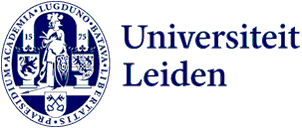Functional MRI Analysis (Basics)
Functional MRI is one of the most widely used methods in (cognitive) neuroscience. This course will teach the basics of fMRI analysis.
- Target group
-
Lecturer
Researcher
Postdoctoral researcher
PhD candidate - Teachers
- Wouter Weeda (Universitair Hoofddocent) Frank de Vos (Universitair docent)
- Method
-
Training course
- Hours
- 16
Deadline registration is before Tuesday 9 May 2024
Functional MRI (fMRI) is one of the most widely used methods in (cognitive) neuroscience. The analysis of fMRI data is however a multidisciplinary endeavour and requires multiple processing steps.
In this 2-day workshop we will teach you the basics of fMRI analysis. On day 1 you will learn about the fMRI signal, how to perform and check pre-processing (filtering, motion correction and registration) and how to set-up a simple analysis. On day 2 the focus will be on statistical analysis of both single-subject and multi-subject designs.
Both days will consist of theoretical sessions, where concepts are explained, and practical sessions, where these concepts are put into practice. At the end of the course students will be able to perform all steps in the fMRI processing pipeline, judge the quality of results, and interpret the outcome of the analyses.
The course is open to PhD students and post-docs. No knowledge of fMRI analysis is required. The course is taught using the FSL analysis software suite.
Mode of instructions
Reading list
Not required, but recommended:
Poldrack, R.A., Mumford, J.A., Nichols, T.E. (2011). Handbook of functional MRI data analysis, Cambridge University Press. DOI: https://doi.org/10.1017/CBO9780511895029
Entry requirement
Fees
|
Target group |
One day |
Two days |
Three days |
|
PhD candidates FSW/FGGA |
FREE |
FREE |
FREE |
|
Staff FSW |
€300 |
€400 |
€500 |
|
Other Leiden University PhD candidates |
€215 |
€315 |
€415 |
|
Externals* |
€450 |
€600 |
€750 |
*Externals are PhD candidates related to staff members of FSW (buitenpromovendi) and/or staff members of other Leiden University Faculties.
